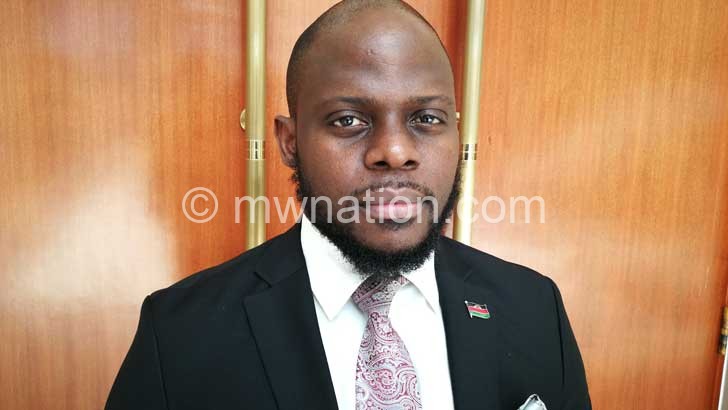Jostling for power
You know elections are just around the corner when political parties break into splinter groups with some sackings and bickering.
There were not few in 2018, the year the top three parties held their elective conventions and came back with familiar names at the helm.
In the year ending, expressing interest to challenge the incumbents was a ‘felony’ and, unsurprisingly, most party presidents were re-elected unopposed.

To political scientist Mustafa Hussein, the trend—and all the political battles of 2018—point to little or no democracy within the country’s major parties.
“Parties are very important democratic institutions. As such, they need to avoid wrangles because they weaken parties. Strong parties are good for democracy,” he says.
Lack of contenders for the top position loomed large in People’s Party (PP), Malawi Congress Party (MCP), United Democratic Front (UDF) and governing Democratic Progressive Party (DPP).
MCP wars
Battles had been raging in MCP for close to two years before its convention in May. As early as August 2017, its former secretary general Gustave Kaliwo called for an early convention. The squabbles were rising when Lower Shire giant Sidik Mia joined the party, declaring his intention to unseat the then vice-president Richard Msowoya.
Yet, when the party hastily called for the convention, Msowoya, Kaliwo and former publicity secretary Jessie Kabwila were fuming and threatening to nullify it through court orders.
Chakwera and Mia went unopposed, unwittingly setting the pace for DPP, UDF and UTM.
However, MCP secretary general Eisenhower Mkaka is quick to negate that that was a mark of lack of democracy in the long-serving party.
“We did not bar anyone from contesting for any position, let alone that of president. We called for individuals to collect nomination forms for any position, but in some, such as president and vice, only one person expressed interest,” he says.
PP’s chosen one
Similarly, wrangles haunted PP since its founder, former president Joyce Banda, returned from a self-imposed exile. In the party, all seemed rosy until Banda’s chosen interim ruler, Uladi Mussa expressed interest to contest against the country’s first female president at the convention. The so-called Chanjigolo, a man who changes goal posts at will, had rejoined DPP when Banda contested against one Leonard Mphiza, who some political analysts described as a weak contender.
According to PP spokesperson Ackson Kalaile Banda, Mussa was fired because he declared himself president of PP in the absence of Banda.
When asked about the little known contender, he said: “No one apart from Mphiza expressed interest to contest against Banda.”
DPP’s headache
The uncurbed ambition to contest against the incumbent was the cause of a shake-up in DPP where President Peter Mutharika and Vice-President Saulos Chilima faced off.
The drama started with a WhatsApp conversation in which former first lady Callista Mutharika sensationally stated that the President, 79, was too old to seek re-election as the 45-year-old Chilima looks on.
The pro-Chilima sentiments were resoundingly backed by DPP national executive (NEC) member Noel Masangwi, youth director Louis Ngalande, director of women affairs Patricia Kaliati and Mulanje South legislator Bon Kalindo.
In June, Chilima resigned from DPP, leaving Mutharika to retain the DPP presidency unchallenged.
The party’s spokesperson Nicholas Dausi says “there is no need for competition” when people have confidence in a leader.
“Why compete against someone who has performed beyond expectations? Democracy cherishes the freedom of choice and the majority chose Mutharika,” he explains.
UDF disunited
The same sentiments abound in UDF, where sitting Balaka North legislator Lucius Banda not only accused party leader Atupele Muluzi of “selling the party” to DPP but also challenged him at the convention.
Banda defected to UTM just a week before the UDF convention and Muluzi was re-elected without a contender.
UDF spokesperson Ken Ndanga says no one was barred from contesting.
“We have an open door policy. We don’t bar or intimidate anyone with interest to vie for any position. In the absence of contenders, we had to settle for Atupele,” he says.
New kid, old story
Perhaps of all parties, one would expect the new kid, UTM, to set the tone for greater competition. But nay, 14 positions went unopposed, including that of president.
To UTM spokesperson Joseph Chidanti Malunga argues that the party is not averse to competition.
“Ours was an open contest in which we indicated that all positions were up for grabs. But others did not express interest in the positions held by the interim members. I think they had confidence in those who held them,” he argues.
Revamping Aford?
For Aford, all pre-convention talk of revamping the party in freefall crumbled when returnee Frank Mwenifumbo launched a campaign to compete against the party’s long-time leader Enoch Chihana. Bizarrely, in May, the two held separate conventions that elected each one of them as leader.
It is only last week, following lengthy court battles that Mwenifumbo gave in to Chihana.
“It had to take some courage to give in because the misunderstanding has gone on for a long time and it is not healthy for our party,” said Mwenifumbo.
To political commentator Rafik Hajat, the elective assemblies of parties vying to rule this country did not live up to democratic values, especially fair competition.





